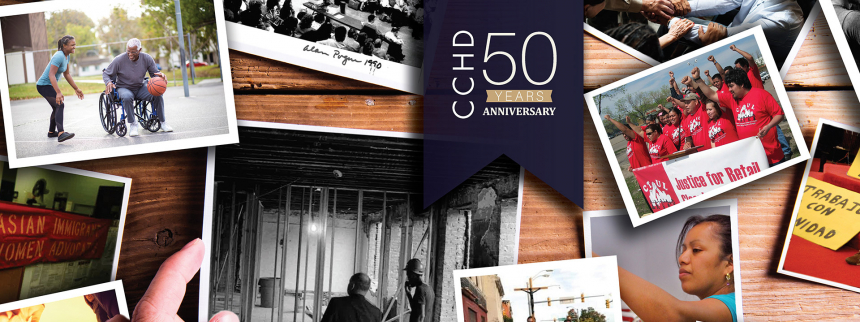
WASHINGTON - On the weekend of November 18-19, Catholics across the United States are asked to respond to Pope Francis’ World Day of the Poor by giving to the U.S. bishops’ Catholic Campaign for Human Development (CCHD). This special annual collection supports the U.S. bishops’ anti-poverty and social justice program established a half-century ago and assists poor and marginalized populations in communities across the United States.
Pope Francis, in his message for the World Day of the Poor 2023, wrote, “Caring for the poor is more than simply a matter of a hasty hand-out; it calls for re-establishing the just interpersonal relationships that poverty harms.”
Bishop Timothy Senior of Harrisburg, chairman of the U.S. Conference of Catholic Bishops’ Subcommittee on the Catholic Campaign for Human Development said, “CCHD combats poverty by supporting the work of grassroots initiatives that address the root causes of poverty. Rather than giving a “hand out” in the form of short-term assistance, CCHD helps people living in poverty in cities and rural areas across the country advocate for affordable housing, obtain living wage jobs, and start sustainable and innovative cooperative businesses that bring stability to local communities.”
Every project supported by CCHD funds must be approved by the local bishop. In addition, “Every funded organization must pledge to pursue only non-partisan projects in harmony with the Catholic understanding of human life and dignity,” Bishop Senior said.
Twenty-five percent of all money given to the collection stays in the diocese where it is given, to fund local anti-poverty initiatives. In the 2021-2022 grant cycle, CCHD distributed 224 grants totaling more than $15.4 million.
The current CCHD recipients in the Diocese of Sacramento are Common Ground (Sacramento Valley Organizing), based in Vallejo, and the Sacramento Environmental Justice Coalition, based in Sacramento. Common Ground works on public safety and tenant protections, and were instrumental in convincing Solano County to award more than $10 million in emergency rental assistance to Catholic Charities during the pandemic. The Environmental Justice Coalition works on environmental and climate justice through a racial equity lens, and have been working in several parishes in the diocese to provide education on Laudato Si' and local climate challenges.
Among the recipients in the United States are:
- Austin Interfaith Sponsoring Committee in Austin, Texas, helps low-income residents respond effectively to gentrification so that rising rents won’t drive them from their homes. Strategies include working with public officials and business leaders to provide training for living wage jobs.
- Recognizing the Stranger, a national, parish-based initiative developed by CCHD, initially mentored Spanish-speaking immigrants to lead other parishioners in addressing critical social needs, ranging from road safety to improved drug enforcement and prevention. It was so successful that English-speaking non-immigrants asked to participate, which helps to break down barriers between parishioners of different backgrounds.
- Gulf Coast Leadership Council in Houston, Texas, addresses infrastructure problems, such as poor drainage and dangerous traffic intersections. The group’s efforts to improve police relations led to the inclusion of mental health workers supporting the work of police involving distressed and potentially volatile individuals.
- Together New Orleans is the driving force behind construction of commercial-scale solar energy in the city’s poorest neighborhoods, providing emergency power after hurricanes and utility assistance to people unable to pay their electric bills.
- Centro Comunitario de Los Trabajadores in New Bedford, Mass., helps immigrant workers in the seafood packing industry advocate for their rights and safety in an industry rampant with wage theft, sexual harassment, and arbitrary dismissal.
- Greater Hartford Interfaith Action Alliance coaches people to lobby for the repeal of unjust laws, such as one that had allowed the government to place liens on the homes of anyone who received state social services.
The collection on November 18-19 is the primary source of income for the Catholic Campaign for Human Development, and the faithful are invited to give generously during weekend liturgies in their parishes.
More information about CCHD and the national collection is online. Funds supporting CCHD are also accepted on #iGiveCatholicTogether.

